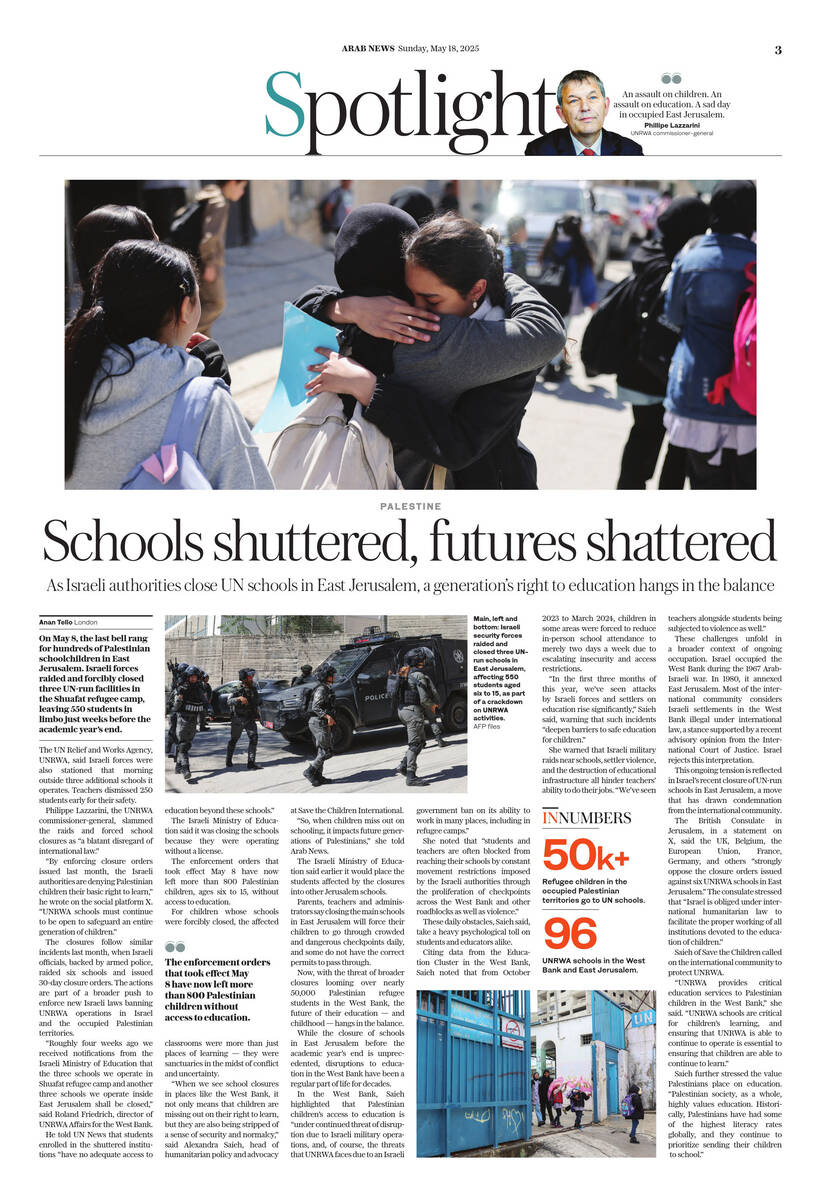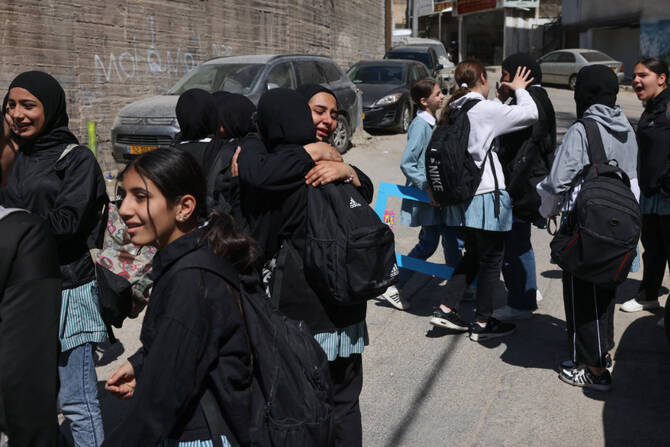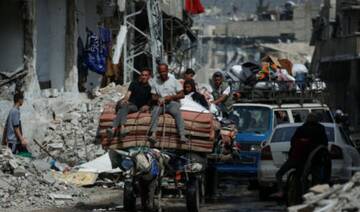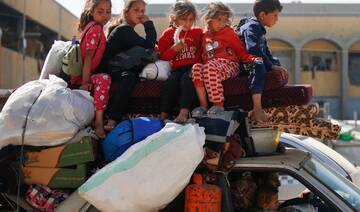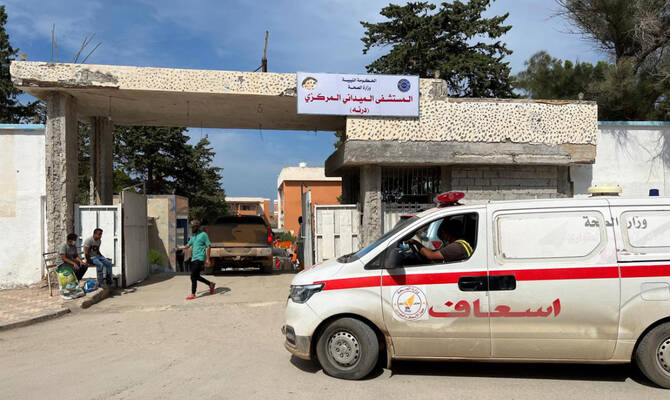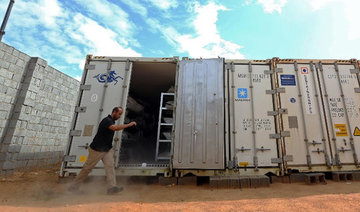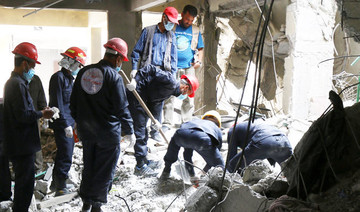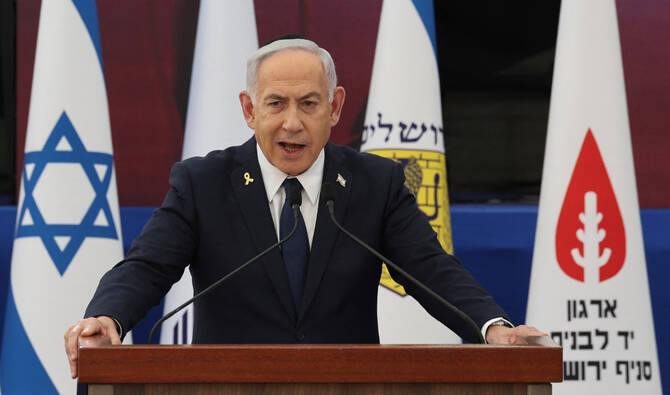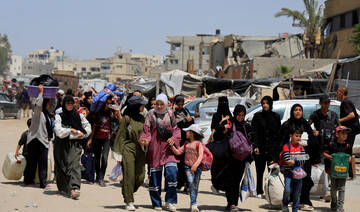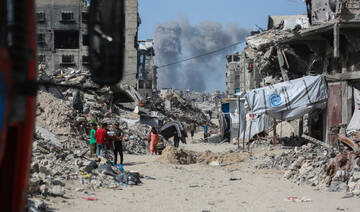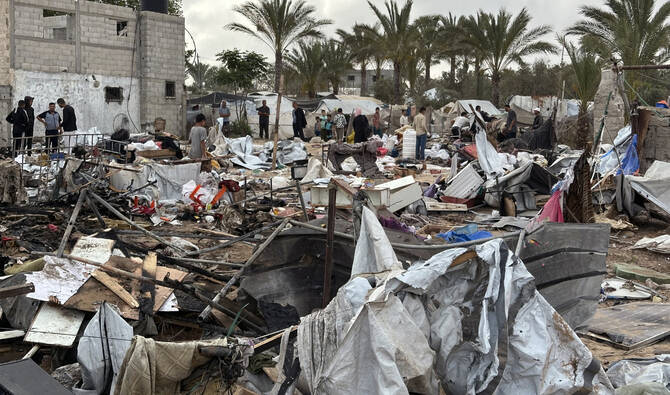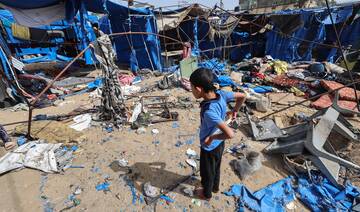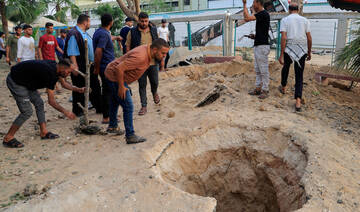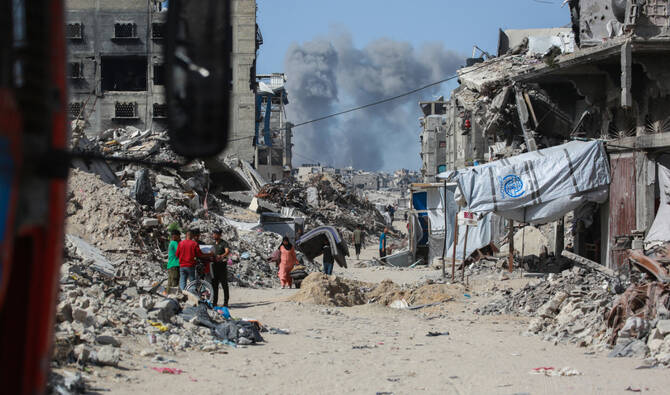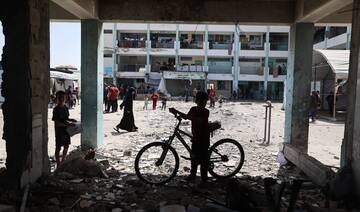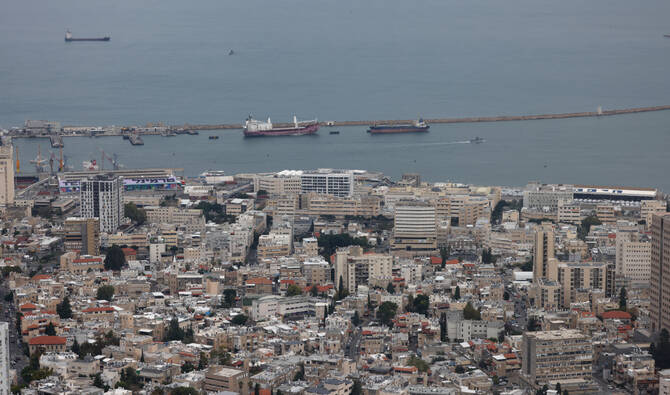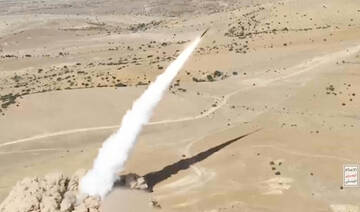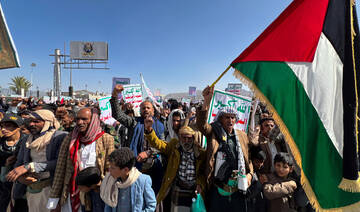LONDON: On May 8, the last bell rang for hundreds of Palestinian schoolchildren in East Jerusalem. Israeli forces raided and forcibly closed three UN-run facilities in the Shuafat refugee camp, leaving 550 students in limbo just weeks before the academic year’s end.
The UN Relief and Works Agency, UNRWA, said Israeli forces were also stationed that morning outside three additional schools it operates. Teachers dismissed 250 students early for their safety.
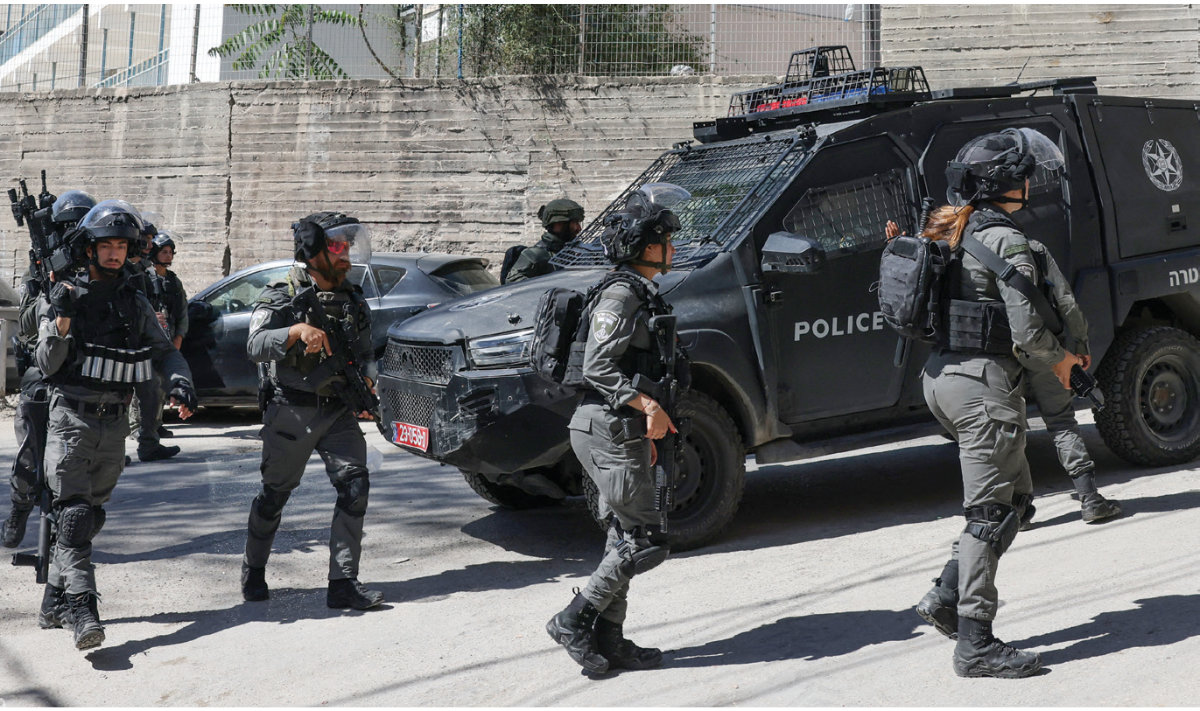
Philippe Lazzarini, the UNRWA commissioner-general, slammed the raids and forced school closures as “a blatant disregard of international law.”
“By enforcing closure orders issued last month, the Israeli authorities are denying Palestinian children their basic right to learn,” he wrote on the social platform X. “UNRWA schools must continue to be open to safeguard an entire generation of children.”
The closures follow similar incidents last month, when Israeli officials, backed by armed police, raided six schools and issued 30-day closure orders. The actions are part of a broader push to enforce new Israeli laws banning UNRWA operations in Israel and the occupied Palestinian territories.
“Roughly four weeks ago we received notifications from the Israeli Ministry of Education that the three schools we operate in Shuafat refugee camp and another three schools we operate inside East Jerusalem shall be closed,” said Roland Friedrich, director of UNRWA Affairs for the West Bank.
He told UN News that students enrolled in the shuttered institutions “have no adequate access to education beyond these schools.”
“This is very concerning for the children, for their families, and it comes while the school year is still ongoing,” he added. “This is unprecedented. It’s a grave threat to the rights of those children.”
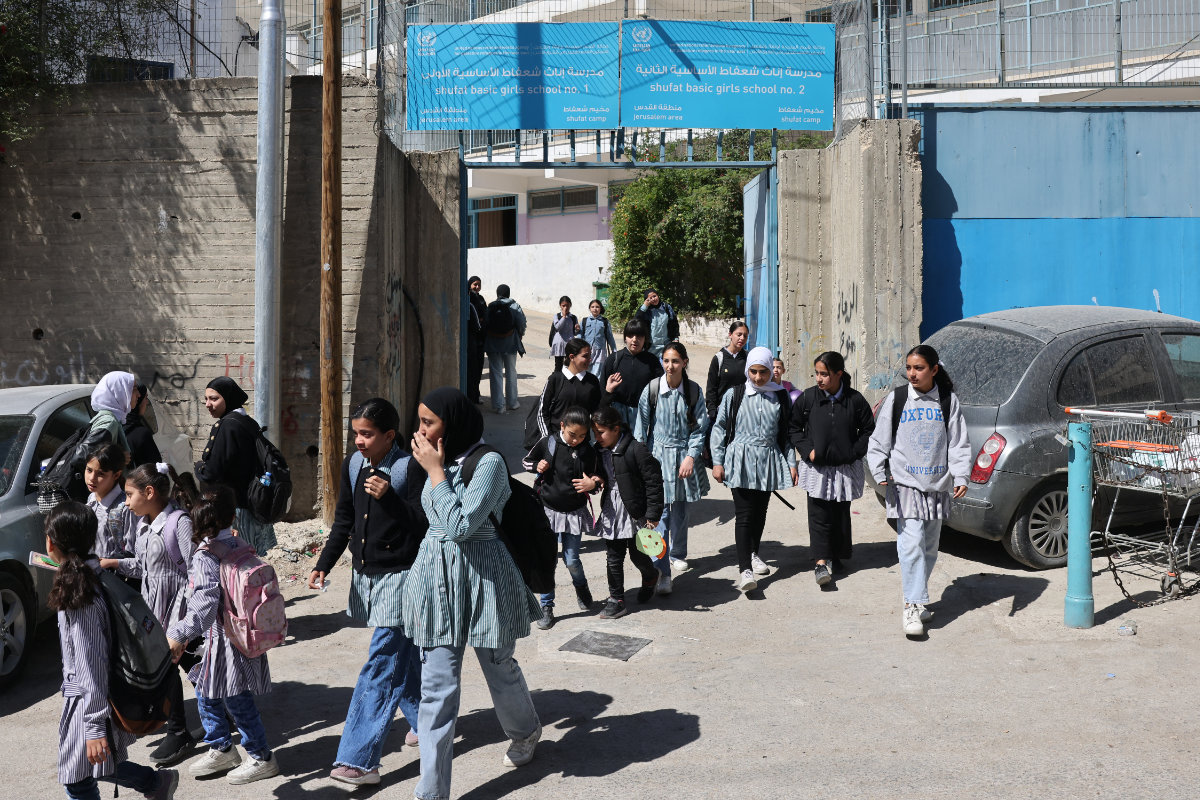
Palestinian schoolgirls embrace as they leave a school run by the UNWRA in the Shoafat refugee camp in east Jerusalem on May 8, 2025, as Israeli security forces reportedly prepare to close the school. (AFP)
The Israeli Ministry of Education said it was closing the schools because they were operating without a license.
The enforcement orders that took effect May 8 have now left more than 800 Palestinian children, ages six to 15, without access to education. “Now, nearly 800 girls and boys — some as young as six years old — are left in shock and trauma,” Lazzarini wrote.
In late January, two Israeli laws banning UNRWA in the occupied Palestinian territories took effect. While implementation was initially slow, the second half of February saw the first moves to forcibly close several agency facilities in East Jerusalem.
Opinion
This section contains relevant reference points, placed in (Opinion field)
For children whose schools were forcibly closed, the affected classrooms were more than just places of learning — they were sanctuaries in the midst of conflict and uncertainty.
“When we see school closures in places like the West Bank, it not only means that children are missing out on their right to learn, but they are also being stripped of a sense of security and normalcy,” said Alexandra Saieh, head of humanitarian policy and advocacy at Save the Children International.
“It also helps them in terms of their long-term physical and mental wellbeing,” she told Arab News. “It improves future prospects, and it also ensures that Palestinian society continues to prosper.
“So, when children miss out on schooling, it impacts future generations of Palestinians.”
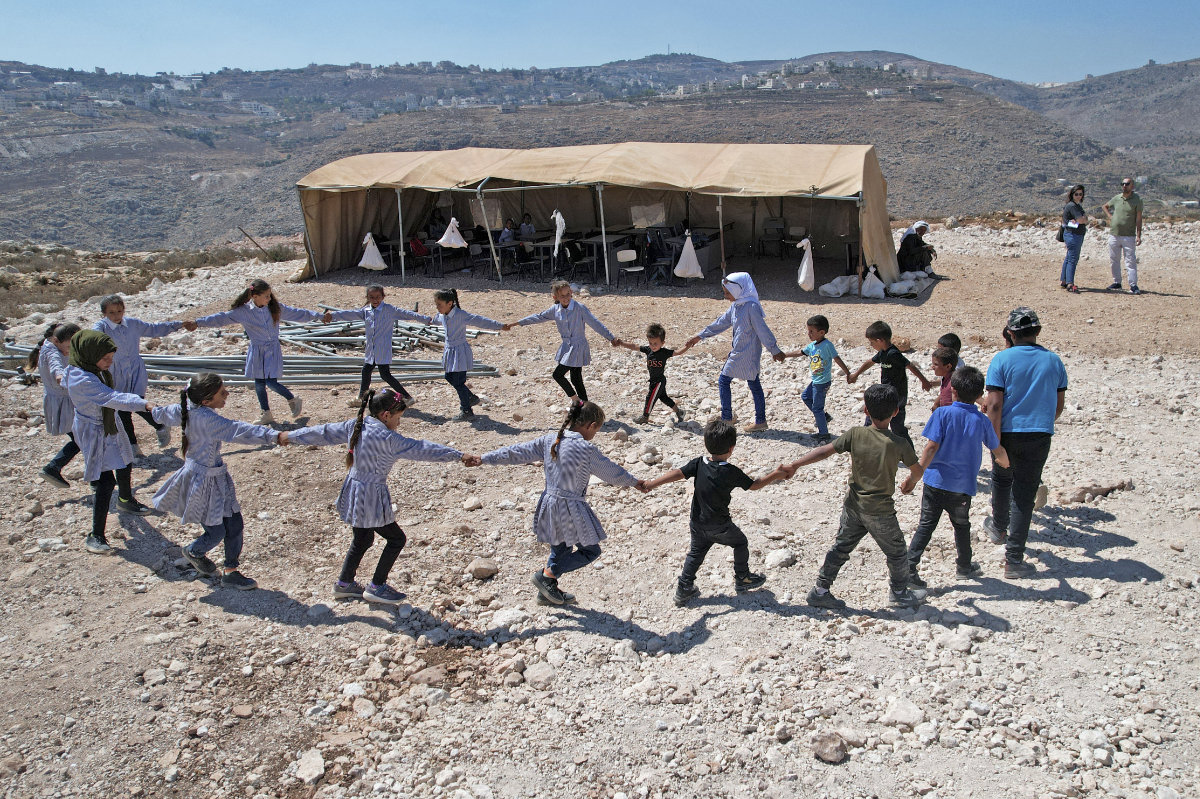
Palestinian Bedouin students play at a primary school near the village of Kafr Malik in the Israeli-occupied West Bank on September 21, 2023. (AFP)
The Israeli Ministry of Education said earlier it would place the students affected by the closures into other Jerusalem schools.
Parents, teachers and administrators say closing the main schools in East Jerusalem will force their children to go through crowded and dangerous checkpoints daily, and some do not have the correct permits to pass through.
Now, with the threat of broader closures looming over nearly 50,000 Palestinian refugee students in the West Bank, the future of their education — and childhood — hangs in the balance.
The Israeli government’s opposition to UNRWA predates this year’s legislative changes. Officials have long criticized the agency’s school curriculum, accusing it of promoting incitement, and have objected to its continued recognition of refugee status for Palestinians displaced during the 1948 war.
Tensions escalated after the Hamas-led attacks on southern Israel on Oct. 7, 2023. Israel alleged that around 10 percent of UNRWA staff in Gaza, or about 1,200 individuals, were affiliated with Palestinian militant groups involved in the assault, including Hamas and Islamic Jihad.
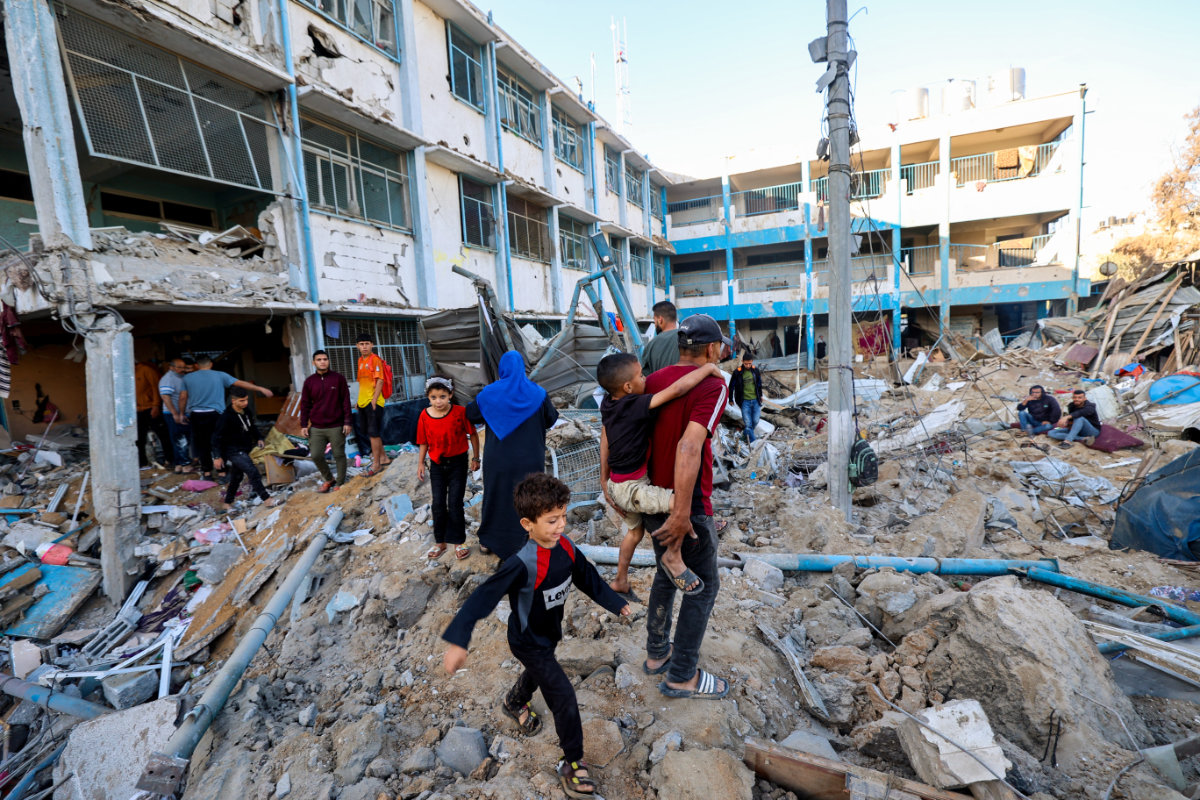
Palestinians check the destruction at a UNRWA school housing displaced people, following an Israeli strike in the Bureij refugee camp in the centre of the Gaza Strip, on May 7, 2025. (AFP)
UNRWA, however, has strongly denied the accusations, saying it has not received any supporting evidence from Israel or any UN member state.
A series of investigations found some “neutrality-related issues” at UNRWA, but stressed Israel had not provided conclusive evidence for its main allegation. It also said last August that nine staff working for UNRWA would be dismissed because they may have been involved in the attacks.
Saieh said Palestinian children’s right to education is “under siege, not just in Gaza, of course, where we’ve seen a total destruction of the education system, including the destruction of schools, the killing of both teachers and students, but also in the West Bank.”
Since October 2023, Israeli attacks on the Gaza Strip have either entirely or partially destroyed almost all school buildings by July 2024, according to the Occupied Palestinian Territory Education Cluster.
IN NUMBERS
• 50k+ Refugee children in occupied Palestinian territories who go to UN schools.
• 96 UNRWA schools in the West Bank and East Jerusalem in total.
As of August 2024, OCHA reports figures from Gaza’s health authorities that identify these attacks have killed 10,627 children and 411 teachers. But until today, the Israeli onslaught has killed at least 52,800 Palestinians in Gaza, more than 17,000 of them children, according to the local Education Ministry.
While the closure of schools in East Jerusalem before the academic year’s end is unprecedented, disruptions to education in the West Bank have been a regular part of life for decades.
In the West Bank, Saieh highlighted that Palestinian children’s access to education is “under continued threat of disruption due to Israeli military operations, and, of course, the threats that UNRWA faces due to an Israeli government ban on its ability to work in many places, including in refugee camps.”
She noted that “students and teachers are often blocked from reaching their schools by constant movement restrictions imposed by the Israeli authorities through the proliferation of checkpoints across the West Bank and other roadblocks as well as violence.”
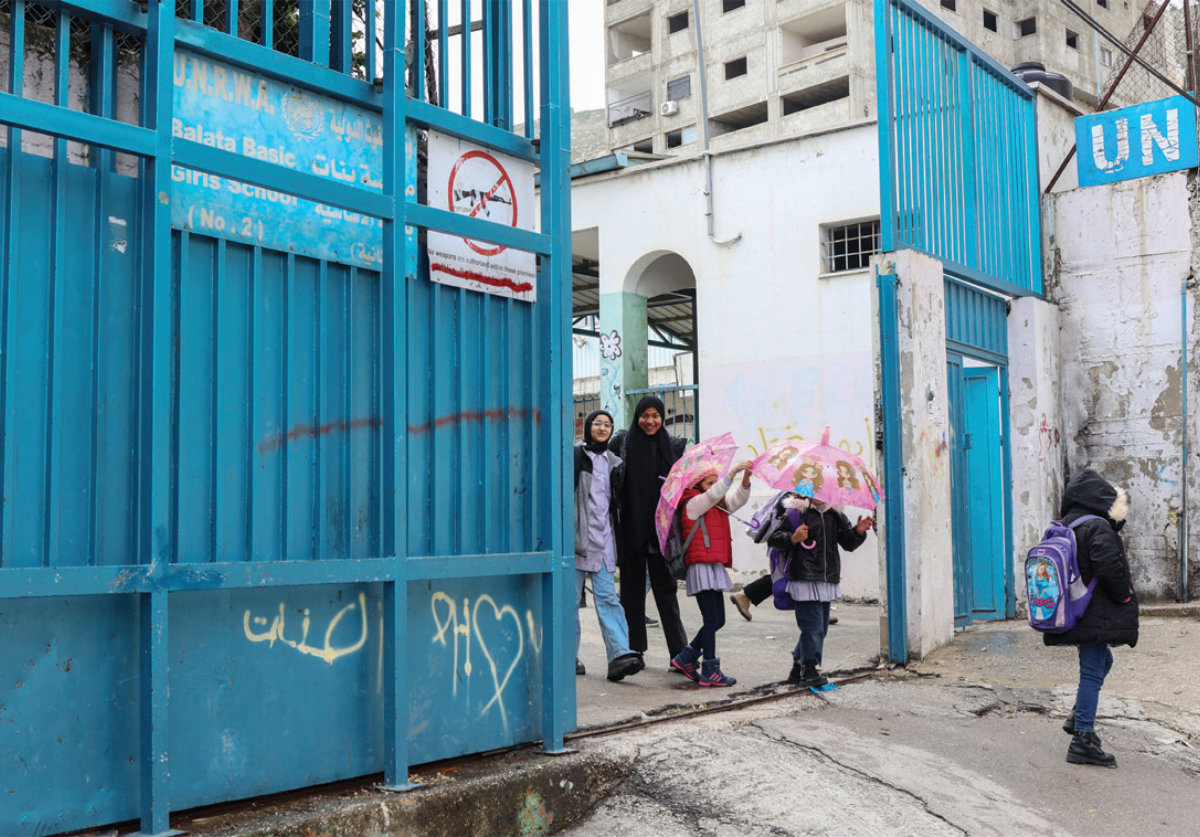
School children call it a day at a UN-run school in Balata camp east of Nablus in the occupied West Bank on February 6, 2025. (AFP)
These daily obstacles, Saieh said, take a heavy psychological toll on students and educators alike.
“In parts of the West Bank, especially where there are checkpoints and roadblocks, there is a great deal of fear, anxiety, and stress associated with the journey to and from school — affecting both children and teachers,” she said.
The impact, she added, extends beyond missed classroom time. Disruptions not only erode children’s emotional well-being and sense of safety, but also impacts “their ability to learn in the future” and “their relationships with families and teachers.”
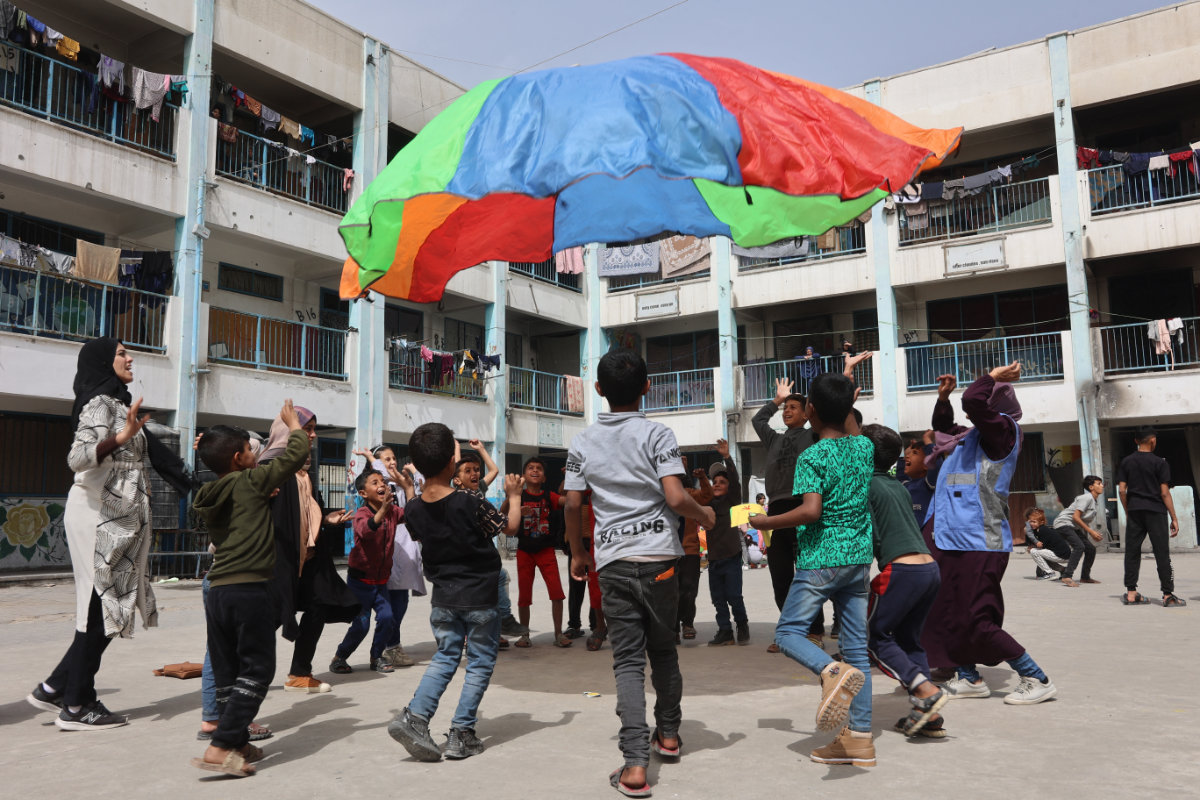
Children participate in an activity aimed to support their mental health, at UNRWA's Tal al-Hawa Elementary Girls School in Gaza City on April 30, 2025, amid the ongoing war between Israel and the Palestinian militant group Hamas. (AFP)
Citing data from the Education Cluster in the West Bank, Saieh noted that from October 2023 to March 2024, children in some areas were forced to reduce in-person school attendance to merely two days a week due to escalating insecurity and access restrictions.
In September last year, the Education Cluster and the West Bank Protection Consortium raised alarm over a Sept. 16 Israeli settler attack on the Arab Al-Kaabneh Basic School in Al-Muarrajat, northwest of Jericho.
“In the first three months of this year, we’ve seen attacks by Israeli forces and settlers on education rise
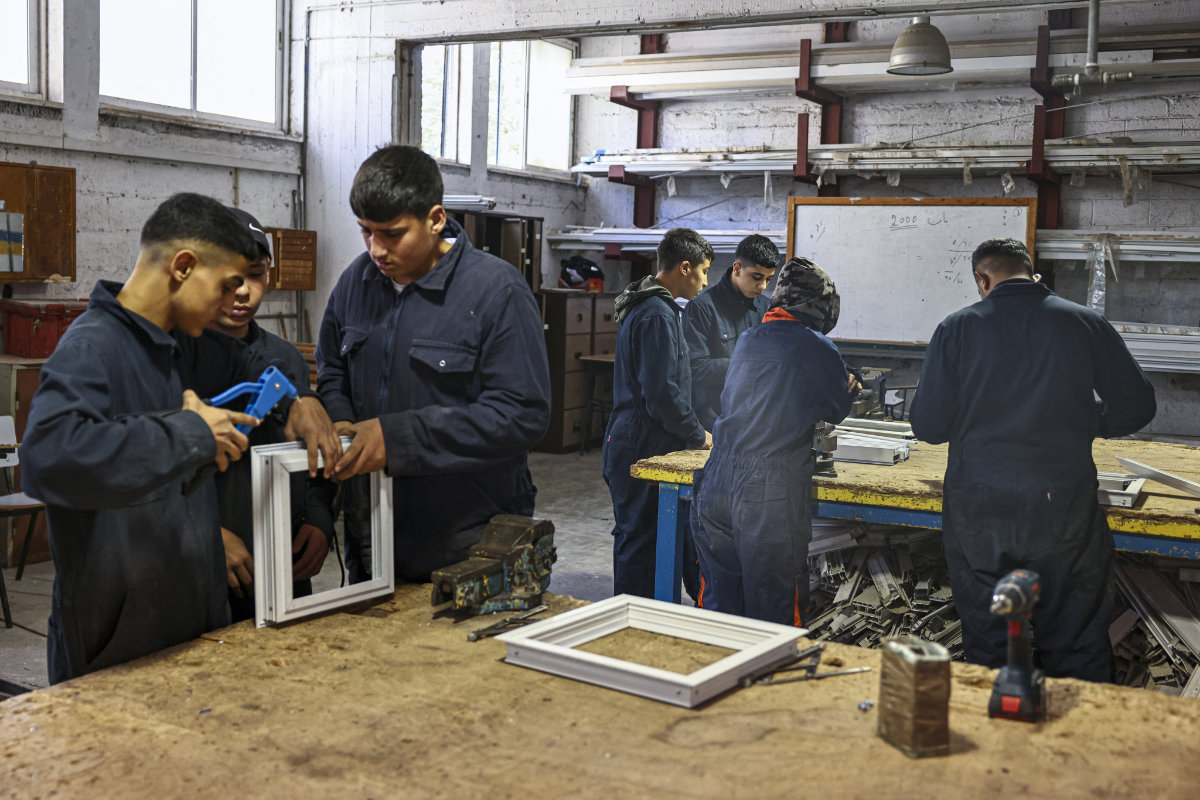
Palestinian students attend a training course on trade at a school run by the UNRWA in the Qalandia refugee camp in the occupied West Bank on November 14, 2024. (AFP)
significantly,” Saieh said, warning that such incidents “deepen barriers to safe education for children.”
She added that the Palestinian Ministry of Education has documented thousands of Israeli attacks on schools over the past year.
“These attacks include breaking into schools, smashing windows, desks, electronic devices, the use of firearms in the vicinity of schools, the detention of students and staff, and delaying and harassing students and teachers on the way to work,” she said.
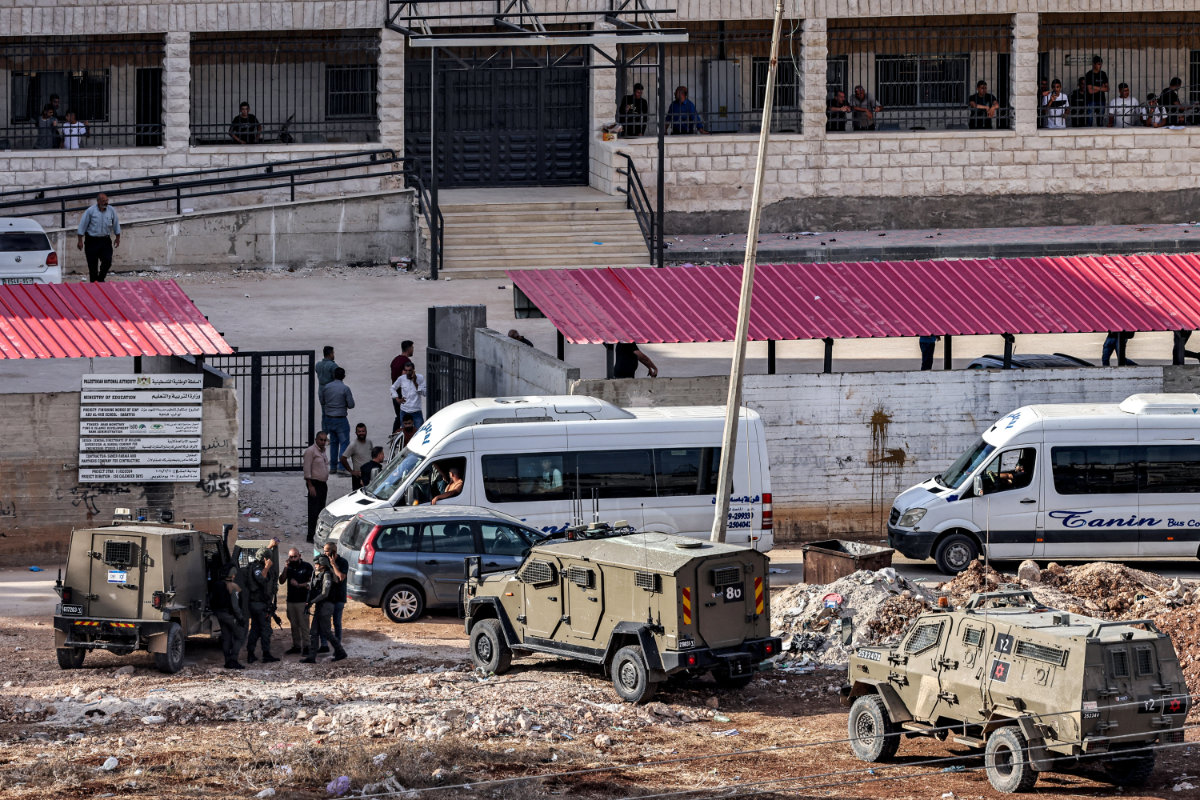
Palestinian students are evacuated in buses from a school in coordination with deployed Israeli forces during an army raid in Qabatiyah south of Jenin in the occupied West Bank on September 19, 2024. (AFP)
Similarly, teachers are not immune to the rising tensions. “Teachers often face immense obstacles just getting to the classroom,” Saieh said. “We know that teachers have been often blocked from reaching schools due to Israeli movement restrictions and violence, so they are also under threat.”
She emphasized that Israeli military raids near schools, settler violence, and the destruction of educational infrastructure all hinder teachers’ ability to do their jobs. “We’ve seen teachers alongside students being subjected to violence as well.”
On top of these security threats, many educators face financial hardship. Saieh noted that many Palestinian teachers are not receiving full salaries, making it difficult to retain staff and provide consistent education in the occupied Palestinian territories.
These challenges unfold in a broader context of ongoing occupation. Israel occupied the West Bank, including East Jerusalem, during the 1967 Arab-Israeli war. In 1980, it annexed East Jerusalem — a move not recognized by most of the international community — and considers the entire city its capital.
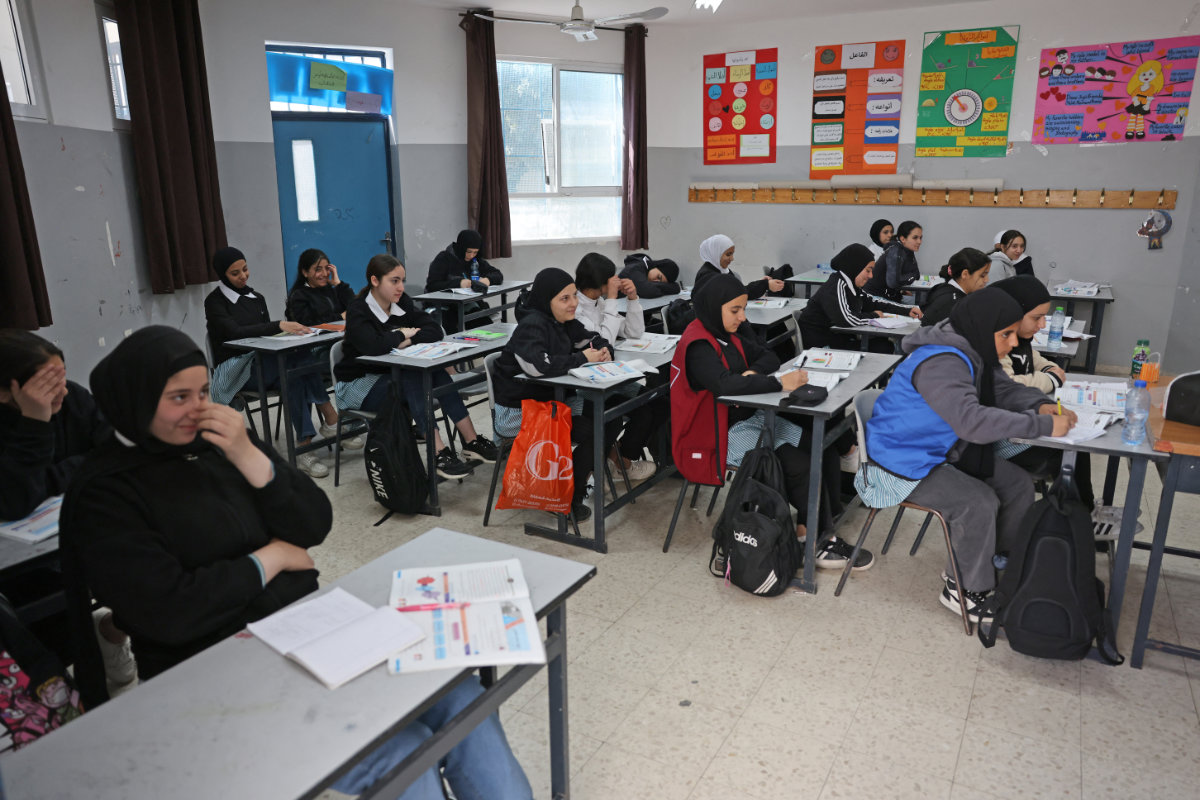
Palestinian school girls attend class at an UNRWA school in the Shuafat refugee camp in east Jerusalem on May 6, 2025.
Palestinians, however, view East Jerusalem as the capital of a future independent state.
Today, about 230,000 Israeli settlers live in East Jerusalem alongside some 390,000 Palestinians.
Most of the international community considers Israeli settlements in East Jerusalem and the West Bank illegal under international law, a stance supported by a recent advisory opinion from the International Court of Justice. Israel rejects this interpretation.
On May 2, the ICJ concluded public hearings on Israel’s legal responsibilities toward allowing UN agencies and humanitarian groups to operate in the occupied Palestinian territories. A formal opinion, requested by the UN General Assembly in December, is expected after several months of deliberation.
This ongoing tension is reflected in Israel’s recent closure of UN-run schools in East Jerusalem, a move that has drawn condemnation from the international community.
The British Consulate in Jerusalem, in a statement on X, said the UK, Belgium, Denmark, the European Union, Finland, France, Germany, Japan, Turkiye, and others “strongly oppose the closure orders issued against six UNRWA schools in East Jerusalem.”
Noting that “UNRWA has operated in East Jerusalem under its UN General Assembly mandate since 1950,” the consulate stressed that “Israel is obliged under international humanitarian law to facilitate the proper working of all institutions devoted to the education of children.”
“Education is a right, not a privilege,” the consulate added in its statement. “Palestinian children, like all children, deserve safe, uninterrupted access to school. We stand in solidarity with students, parents, and teachers.”
Saieh of Save the Children called on the international community to protect UNRWA.
“UNRWA provides critical education services to Palestinian children in the West Bank,” she said. “UNRWA schools are critical for children’s learning, and ensuring that UNRWA is able to continue to operate is essential to ensuring that children are able to continue to learn.”
She also highlighted the deep desire of Palestinian children to attend school. “Palestinian children want to go to school. We hear this consistently from the children we work with across the occupied Palestinian territories.”
Saieh further stressed the value Palestinians place on education. “Palestinian society, as a whole, highly values education. Historically, Palestinians have had some of the highest literacy rates globally, and they continue to prioritize sending their children to school.”
